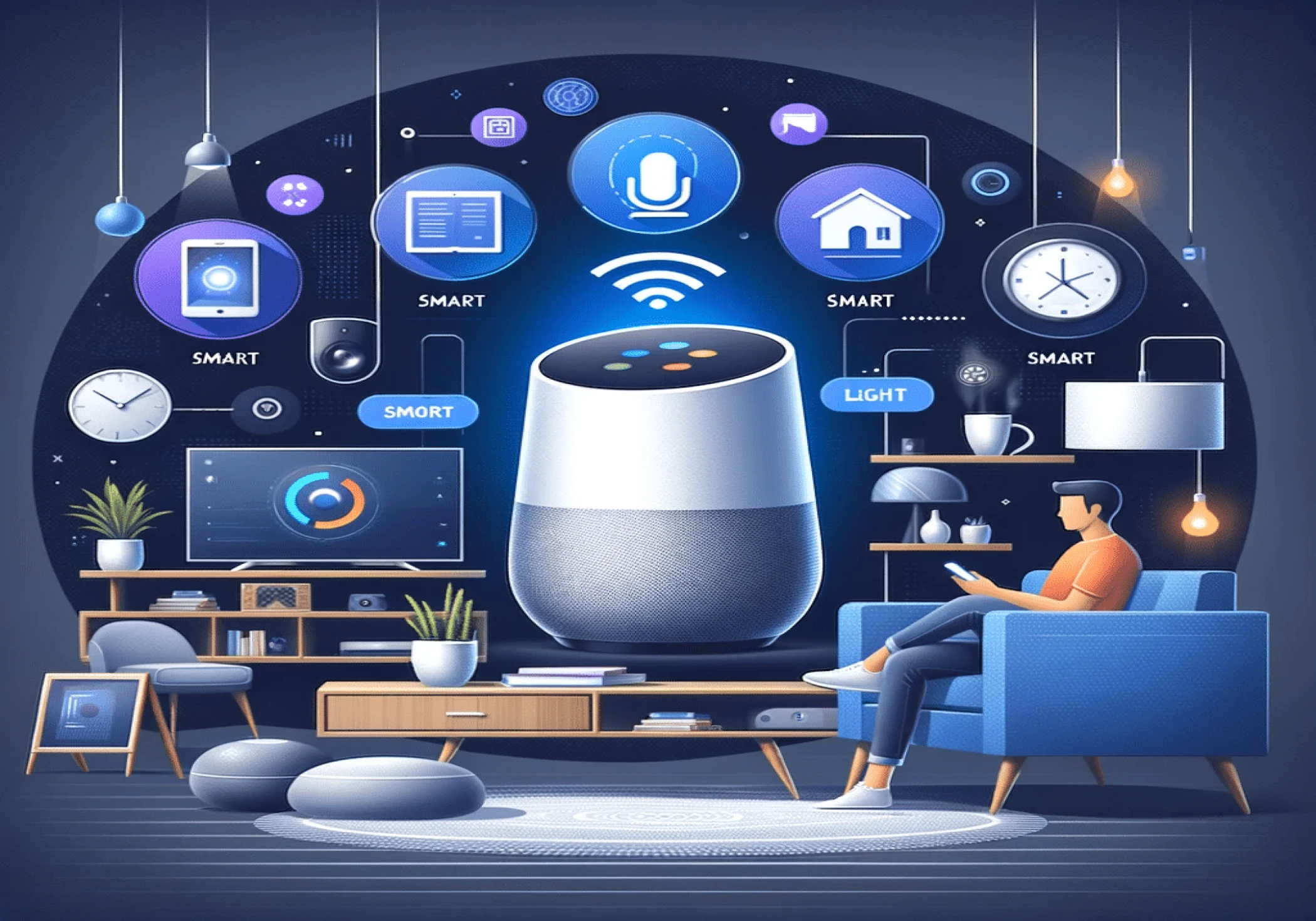Introduction
Artificial Intelligence (AI) is no longer a futuristic concept—it has seamlessly integrated into our daily lives, revolutionizing how we work, communicate, and manage our routines. From smart home automation to AI-driven personal assistants, technology is enhancing convenience, efficiency, and personalization like never before. This blog explores how AI is reshaping daily activities, making life smarter and more efficient.

AI in Smart Homes: A New Era of Automation
Smart homes have become one of the most visible applications of AI, bringing automation, security, and energy efficiency into everyday life.
1. Smart Assistants and Voice Control
Devices like Amazon Alexa, Google Assistant, and Apple Siri have redefined how we interact with technology. These AI-driven assistants can:
- Control smart home devices with voice commands
- Set reminders, alarms, and schedules
- Provide real-time updates on weather, news, and traffic
- Automate routines like adjusting lights and temperature based on user preferences
2. Energy Efficiency and Smart Appliances
AI-powered smart thermostats, such as Google Nest and Ecobee, learn user habits and adjust temperature settings to optimize energy consumption. Similarly, AI-driven washing machines, refrigerators, and lighting systems reduce waste and improve efficiency by analyzing usage patterns.
3. Home Security and Surveillance
AI-enhanced security systems use facial recognition, motion detection, and real-time alerts to improve safety. Smart doorbells like Ring and security cameras integrated with AI can detect suspicious activity and notify homeowners instantly.
AI-Powered Personalized Assistants
AI is transforming personal productivity and task management through intelligent assistants that offer customized experiences.
1. AI Chatbots and Virtual Assistants
Virtual assistants like ChatGPT and Google Bard provide instant responses, draft emails, and assist with research, streamlining professional and personal tasks.
2. Health and Fitness Tracking
Wearable devices like Fitbit and Apple Watch use AI to monitor health metrics, track physical activity, and provide personalized fitness recommendations. AI-powered apps analyze sleep patterns, heart rate, and daily movement to enhance overall well-being.
3. Smart Financial Management
AI-driven financial tools help individuals track expenses, manage budgets, and optimize savings. Apps like Mint and YNAB use AI to analyze spending patterns and offer insights for better financial planning.
AI in Transportation and Commuting
AI has significantly improved transportation, making daily commutes more efficient and safer.
1. Smart Navigation and Traffic Management
Navigation apps like Google Maps and Waze leverage AI to provide real-time traffic updates, suggest the fastest routes, and predict congestion patterns.
2. Autonomous Vehicles and Ride-Sharing
AI is at the core of self-driving technology, with companies like Tesla and Waymo developing autonomous vehicles. Additionally, ride-sharing platforms like Uber and Lyft use AI for route optimization, dynamic pricing, and customer service enhancements.
AI in Shopping and Entertainment
AI personalizes shopping experiences and enhances entertainment options through recommendations and predictive analytics.
1. Personalized Shopping Experiences
E-commerce platforms like Amazon and Alibaba use AI to recommend products based on browsing history and past purchases, improving user experience and sales.
2. AI in Streaming Services
Platforms like Netflix and Spotify leverage AI to analyze user preferences and provide personalized recommendations, ensuring content aligns with individual tastes.
Challenges and Ethical Considerations
Despite its benefits, AI poses challenges related to data privacy, algorithm bias, and cybersecurity. Ensuring responsible AI development with transparency and ethical guidelines is crucial for maintaining trust and security.
Conclusion
AI has seamlessly integrated into our daily lives, enhancing convenience, efficiency, and personalization across various domains. From smart homes to AI-driven assistants, technology continues to redefine how we live and interact with the world. As AI evolves, its impact on daily routines will only grow, making life smarter and more interconnected.
How has AI transformed your daily routine? Share your experiences in the comments below.